Other
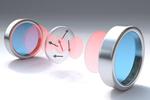
“Physicists at the Max Planck Institute of Quantum Optics have developed the basic technology for a new “quantum modem”. It will allow users to connect to a future quantum internet that is based on the existing fibre optic network infrastructure …

“Path to higher thermal insulation of the plasma / Reduction of plasma turbulence The turbulence code GENE (Gyrokinetic Electromagnetic Numerical Experiment), developed at Max Planck Institute for Plasma Physics (IPP) at Garching, Germany, has proven to be very useful for the …
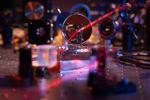
“Physicists succeed at engineering an optical mirror made of only a few hundred atoms. It is the lightest one in the world and even imaginable. Physicists at the Max Planck Institute of Quantum Optics (MPQ) have engineered the lightest optical …
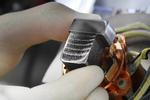
“Max Planck scientists use the intrinsic heat treatment of additive manufacturing to locally control the microstructure. Their recent findings have now been published in the latest issue of ‘Nature’. Dr. Philipp Kürnsteiner, Prof. Eric Jägle and their team at the …
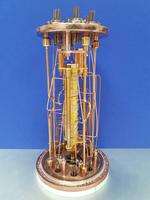
“Measuring tiny differences in mass between different quantum states provides new insights into heavy atoms A new door to the quantum world has been opened: when an atom absorbs or releases energy via the quantum leap of an electron, it …

“New investigation method provides fundamental insights into electrocatalytic water splitting under operating conditions Whether as a fuel or in energy storage: hydrogen is being traded as the energy carrier of the future. To date, existing methodologies have not been able …

“Polarisable microrobots components can be designed to find each other in an electric field In the future, designers of micromachines can utilize a new effect. A team led by researchers from the Max Planck Institute for Intelligent Systems in Stuttgart …
News New research highlights similarities in the insulating states of twisted bilayer graphene and cuprates

“In recent decades, enormous research efforts have been expended on the exploration and explanation of high-temperature (high-Tc) superconductors, a class of materials exhibiting zero resistance at particularly high temperatures. Now a team of scientists from the United States, Germany and …

“Controlling how electrons zip through a material is of central importance to build novel electronic devices. How the electronic motion is affected by magnetic fields is an old problem that has not been fully solved, yet has already led to …
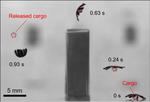
“The scientists at the Max Planck Institute for Intelligent Systems in Stuttgart who invented Jellyfishbot win the Best Paper Award at a prestigious robotics conference and have their work published in Nature Communications. Their research holds great potential when investigating …
